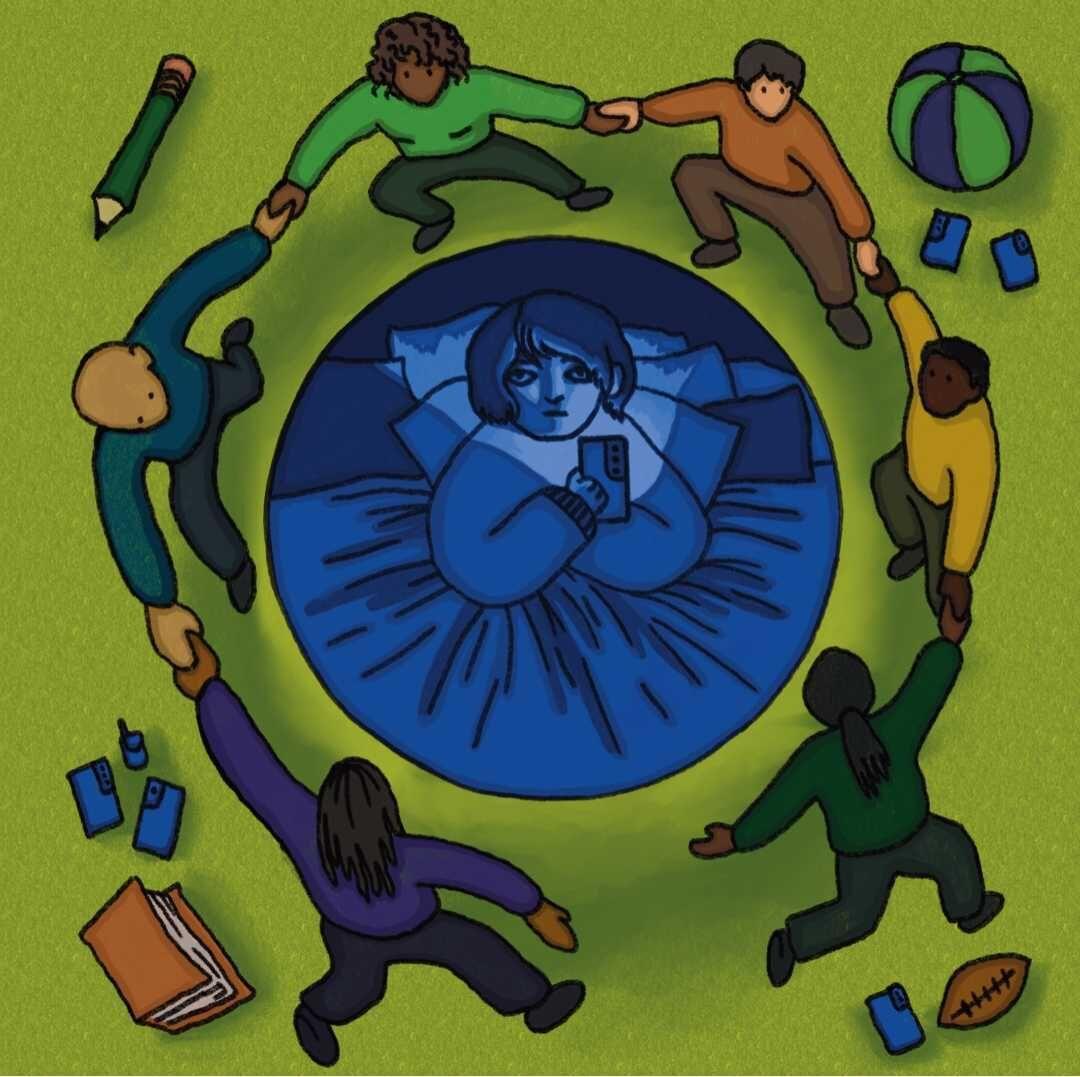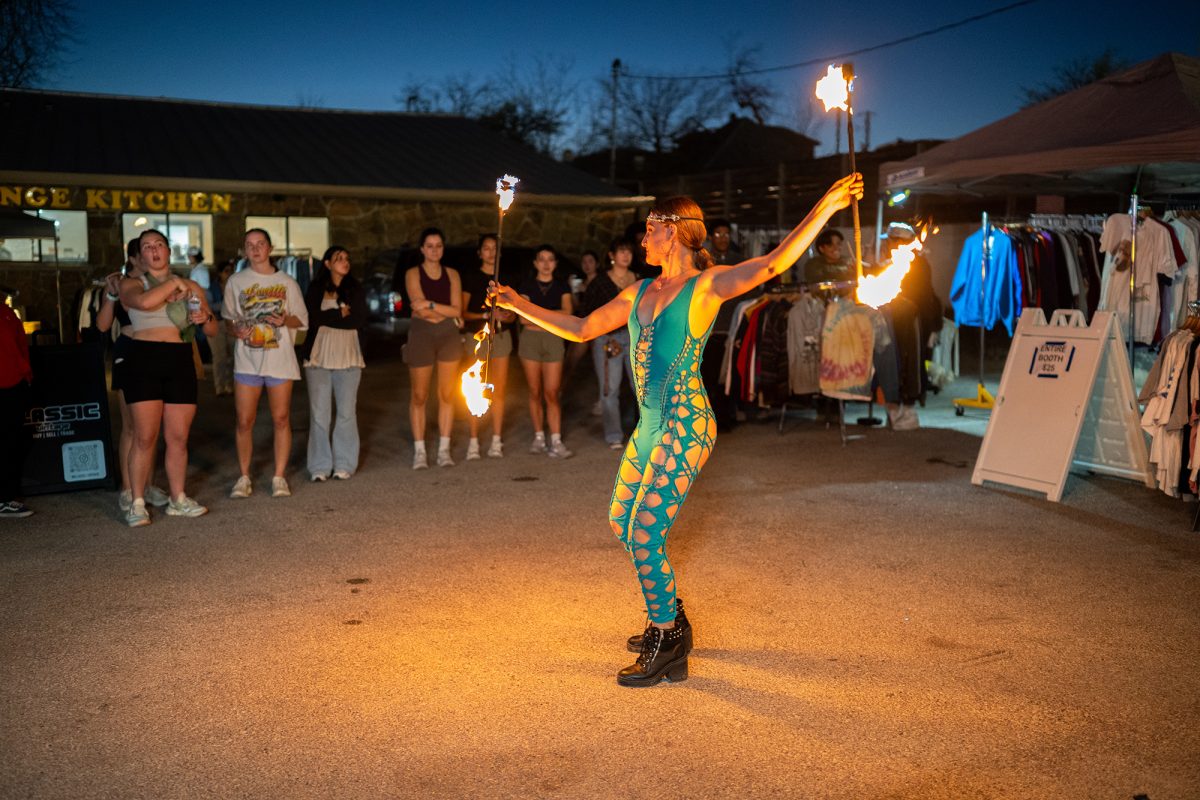In a generation surrounded by technology, it’s important for many to balance screen time with real life experiences that provide the opportunity to grow, learn and make memories that will last a lifetime. Phones may seem like the easiest outlet to turn to in times of boredom, but San Marcos and Texas State have other things to offer in place of screens.
Jon Lasser, Ph.D., psychologist and Texas State professor in the School of Education, encourages students to balance screen time with in-person adventures and interactions.
“Instead of getting on your phone, enjoy the river,” Lasser said. “Get off campus and explore San Marcos and the surrounding areas, spend time talking to people who are different from you.”
Lasser said although research on screen time’s effect on mental health is hard to prove scientifically, engagement in real life, face to face interactions and physical movement are part of a healthy lifestyle.
“When we spend a lot of time in front of screens, we’re often missing out on some of those opportunities,” Lasser said.
Lasser urges students to take advantage of all the opportunities at Texas State, even if that means stepping out of one’s comfort zone. Trying new things, meeting new people and exploring the city are bound to provide positive experiences.
Despite screen time’s potential dangers, technology is a part of this world, and it does have its advantages, Lasser said. Screens can facilitate interactions with new friends, help students discover clubs and organizations and more, but it’s vital to balance screens with real life experiences.
Sydney Hutchins, a Texas State alumna who graduated with a bachelor’s degree in psychology in May, noticed the amount of time she spent on her phone during her freshman year at Texas State and decided to make a change.
“I researched hobbies online and I found some that I didn’t have to spend any money on,” Hutchins said. “You know, things you can do around San Marcos that are entertaining.”
Her favorite things to do around San Marcos are exploring the local coffee shops, sunbathing and swimming at Sewell and rollerblading at the Lion’s Den. These real-life experiences helped her create unforgettable memories.
When she realized how much time she was spending on her phone, Hutchins decided to monitor her screen time and set notifications to alert when a certain time passed.
“I feel like it takes away from experiences that you can have in real life and in the moment, and you’re choosing to stay on your phone,” Hutchins said.
Hutchins’ college experience flourished with less screen time and more real-life activities and adventures. She encourages students to step outside of their comfort zone and enjoy San Marcos’ hidden and not-so-hidden gems. Hutchins believes there are many activities that students should take advantage of in place of screens, whether it be exploring the river, taking a walk around campus, listening to music or expressing creativity through arts and crafts, with friends or alone.
Emma Schuetz, Texas State alumna who graduated with a bachelor’s degree in psychology in December 2022, has a similar perspective as Hutchins on her advice on screen time.
Schuetz studied the effects of screen time on the brain during her brain and behavior class at Texas State. The results showed that screen time worsens attention spans and affects the dopamine reward system.
“Whenever you’re just on your phone for like seven hours plus, you’re getting so much dopamine that at the end of the day, you need so much more stimulus to get the dopamine that you just get more anxiety without it,” Schuetz said. “It completely destroys your dopamine reward system.”
Schuetz knows firsthand how too much screen time can affect one’s mental health. When COVID-19 was at its peak, she spent hours on her phone, leading her to depression.
Monitoring her screen time and putting her phone away helped her regain motivation to do activities, try new hobbies and enjoy nature.
“I feel like that helps so much with it,” Schuetz said. “I guess like, in short, it helped me come out of my shell.”
Schuetz advice to students is to utilize screen time limits, delete apps that are highly addictive and live in the moment. She urges students to explore The Meadows Center, swim in the river and take advantage of the hiking trails in San Marcos.
“There’s a lot of places to go in San Marcos, it’s just that freshmen don’t really know that,” Schuetz said. “I feel like it’s not really expressed.”
To learn more about what to do in San Marcos, visit https://www.visitsanmarcos.com/events/.
Categories:
TXST psychology encourages swapping screen time for lasting memories
Bella Vogiatzis, Life and Arts Contributor
June 10, 2023
0
Donate to The University Star
Your donation will support the student journalists of Texas State University. Your contribution will allow us to purchase equipment and cover our annual website hosting costs.
More to Discover









